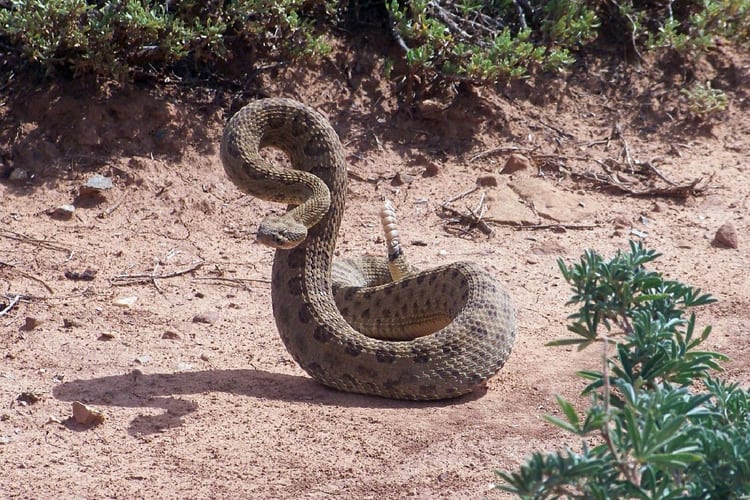September is rattlesnake season, the month when more snakebite calls are received than any other month of the year.
Banner Poison and Drug Information Center answered 91 snakebite calls from Maricopa County last year with 20 percent of those calls occurring in the month of September. Medical toxicologists at the University of Arizona College of Medicine – Phoenix, who specialize in the management of snake envenomation, directly cared for 59 patients with snake envenomation last year at Banner – University Medical Center and Phoenix Children’s Hospital.
Michelle Ruha, MD, a medical toxicologist at the University of Arizona College of Medicine – Phoenix and Banner – University Medical Center Phoenix, discusses what the public needs to know to keep safe during rattlesnake season.
Why is September historically one of the busiest months for snakebites?
September is often the busiest month for snakebite calls to the Banner Poison and Drug Information Center. Snakes are active during warm weather, which in Arizona means a snakebite season that lasts from April through October. However, during the hottest summer months, the snakes are less active during the day, meaning fewer interactions with people and fewer bites. Come September, when temperatures become more tolerable and mornings are cooler, the snakes increase their daytime activity and more human interactions occur, resulting in more bites.
What steps can people take to make sure they are not bitten by a snake?
The most important thing is to be aware of your surroundings. When in a desert environment where snakes may live (even if the setting is residential and snake encounters might be unexpected), there are several things you can do to protect yourself. Always watch where you step before exiting a car or before stepping outside of your home, wear protective footwear, don’t blindly reach into a bush or a hole in the ground in search of an errant golf ball, stay on marked trails when hiking, and don’t play loud music through ear buds while hiking, which could prevent you from hearing a warning rattle.
What should they do if they’ve been bitten? What if my child was bitten?
Go directly to an emergency department if bitten by a rattlesnake. While some bites are “dry” and do not produce any effects, most bites require treatment in a hospital. Adults and children are equally at risk for developing serious illness after a snakebite. If symptoms such as dizziness, sleepiness, vomiting or trouble breathing occur immediately after the bite, call 911 to be transported to a hospital. If symptoms are limited to minor swelling and pain immediately after the bite and a nearby hospital is within easy access, emergency medical transport may not be necessary.
Do not apply a tourniquet or use any field treatments such as those found in a “snake bite kit.” These treatments have not been shown to help and in some cases may increase tissue injury.
How do you know if the snake that bit you is venomous?
Rattlesnakes are the only venomous snakes in Arizona that pose a danger to humans. Rattlesnakes can most easily be distinguished from non-venomous snakes by their triangular shaped head. They also possess a rattle at the end of the tail which they shake when threatened, producing a clear warning to retreat. However, the rattle may not have developed yet in young snakes or may have broken off, so the absence of a rattle can sometimes be misleading. If unsure whether the snake was venomous, seek medical attention.
What should you do if you see a rattlesnake while hiking?
Avoid it. Do not approach the snake or try to injure or kill the snake. Rattlesnakes do not attack humans and will leave you alone if you leave them alone. Warn others on the trail of the location of the snake so they too can avoid an interaction. If you see a snake in your yard or in a location where it may pose a threat to passersby, do not attempt to move the snake unless you are trained to do so. Call a professional service to move the snake to a safe location.
The Phoenix Herpetological Society has a Rattlesnake Hotline for snake removal: 602-550-1090.




